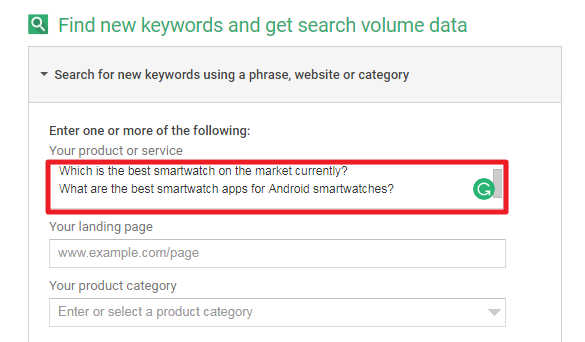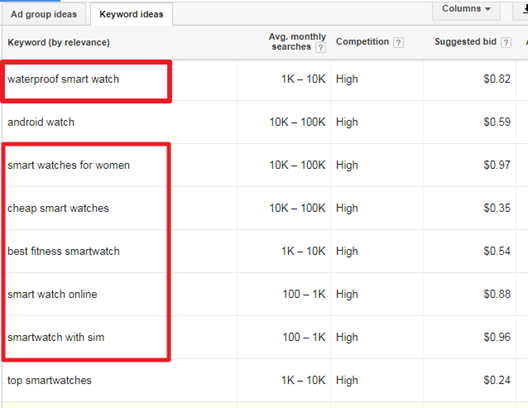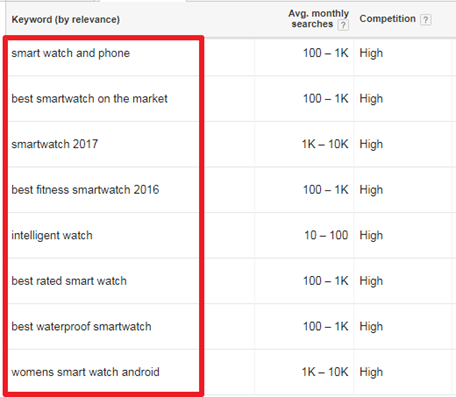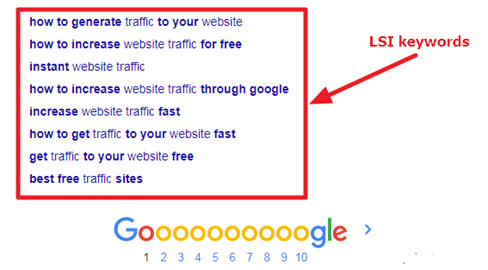Have you made up your mind on the keywords you want to rank for? It’s an important decision that you have to make if you don’t want to do SEO blindly. The reason for competitive research is to know what these target keywords that will drive you the best results are.
The traditional keywords research starts by looking up a “head keyword” in Google Keywords Planner, then choosing some of the keywords for your campaigns.
Of course, there’s nothing wrong with this approach if you’re just starting out. However, because we’re dealing with advanced SEO guide, there are better ways to get keywords that your competitors haven’t discovered yet.
First, we’ll use Quora.
Quora is the best Q&A website in the world. It’s a strong community of active users who ask every imaginable question and people from all walks of life can provide answers.
The beauty of Quora is that the questions people ask often give you an insights or ideas as to what keywords they would likely use if they use the search engine.
So, enter a particular keyword (e.g., smartwatch) into Quora and see the questions that pop out.

There are tens of thousands of questions related to “smartwatch” on Quora. However, I want to show some examples using the two highlighted questions, which are:
Which is the best smartwatch on the market currently?
What are the best smartwatch apps for Android smartwatches?
With these two questions (which definitely have keywords within them), we can dig further to find viable keywords that ordinarily we can’t locate in Google Keywords Planner.
So what do we do? Well, simply copy and paste the two questions exactly as they are into the Google keywords suggestion box.

Once you click on the “Get ideas” button, here’s the keyword list I discovered.

To find even more keywords, copy one of the keywords (e.g., smartwatch with sim) and research more to find other variations. When I did, here’s what I found:

We’ll find even more keywords, but right now, let’s discuss LSI keywords.
Latent Semantic Indexing (LSI)
Latent Semantic Indexing (LSI) is basically a mathematical technique used to determine the connective relationship between search terms and concepts in a given content.

Since the search engine spiders follow links to crawl content on the web, it makes sense to simplify this process so they understand what your page is about.
Usually, search engine crawlers try to identify the most common words and phrases on a content, collates them, and does some calculations with them.
When it comes to search engine optimization, website owners are being careful because any mistake or assumed violation by Google could result in a manual review or outright penalty. Over-optimizing your content with too many keywords could affect your rankings.
Hence, you need to use LSI keywords. In other words, these are synonyms of the primary keywords that you’re targeting. Which means instead of mentioning the same keyword over and over again, you mention related terms (not necessarily search terms).

Using LSI keywords, you’re helping search engine crawlers to better understand your content and index it accordingly. Naturally, Google wants to see some related terms when you’re writing about a given topic.
For example, if you’re writing about Microsoft Windows, Google expects to see related words such as Bill Gates, operating system, windows, and so on. If you’re writing about Apple Inc, you’re expected to naturally include terms such as Apple iPhone, MacBook, Steve Jobs, Apple Store, iTunes, etc.
These related terms make up the LSI keywords that you should optimize your content with.
So if you found the keyword “web traffic generation” mentioning the same keyword several times in a 1,000-word article might result in keyword stuffing or over-optimization. Hence, you need to find related terms or LSI keywords.
Here’s how to do it. Copy and paste the keyword (i.e., web traffic generation) into the search engine, then cross all the way down to find the LSI related terms.

Essentially, latent semantic indexing (LSI) looks for synonyms related to the primary keyword on a page.
In creating a blog post, for example, here’s how you can use the target keyword in the first paragraph as well as one of the LSI related terms:
7 Powerful Website Traffic Generation Strategies that Work
In this article, I want to show you some of the effective website traffic generation techniques that I’ve used in the past 4 months to grow my business. It works for every type of website, and you can use it to get traffic to your website free. It’s going to be a step-by-step guide; so there’s nothing to worry about.
Note: The first underlined term is the main keyword, while the second underlined term is the LSI keywords that will further tell Google spider that our content page is related to growing website traffic, and not tackling the “traffic” on our major highway. I’m sure it makes sense?
Side note: LSI keywords aren’t ideal for everyone. A business that doesn’t have the intention of ranking higher in the search engines shouldn’t care about related terms.
Website owners, content creators, and bloggers in general who are always looking for ways to rank better in the search engine results pages, as well as be on the good side of Google, should pay attention to LSI.
Competitor Analysis for SEO
SEO Optimized Landing Pages